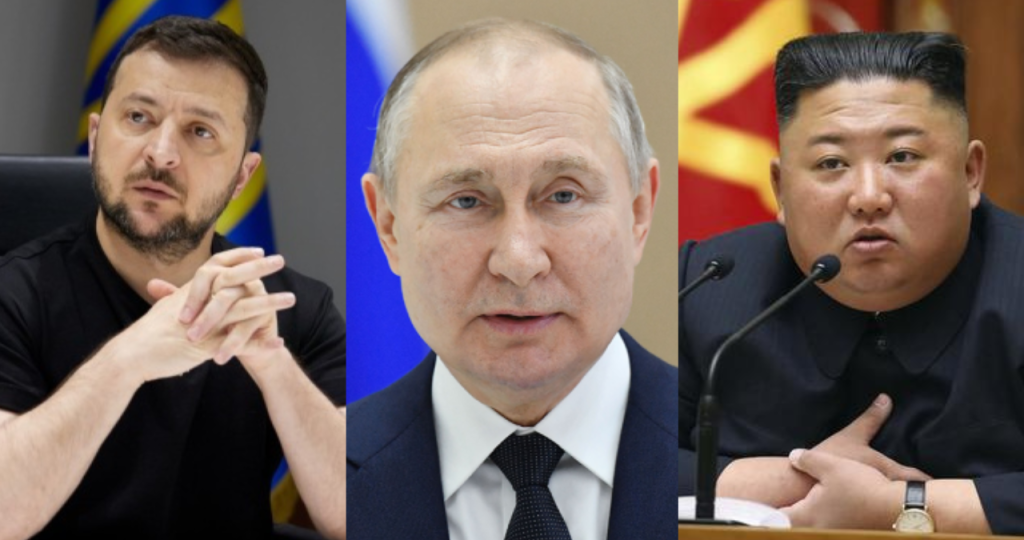The Democratic People’s Republic of Korea (DPRK), better known as North Korea, is expected to participate in the reconstruction of the self-proclaimed Donetsk People’s Republic and Luganks People’s Republic. Pyongyang’s decision to recognize the two Russia-backed entities in eastern Ukraine was almost certainly greenlit by China – North Korea’s nominal ally – although that does not mean that Moscow and Beijing will change their approach regarding “the most isolated country in the world”.
On July 13 North Korea recognized the Donbass republics, joining Russia and Syria as the only countries to do so. In response, Ukraine terminated its diplomatic relations with Pyongyang. The Democratic People’s Republic of Korea was one of only five nations to vote against a United Nations resolution condemning Russia’s invasion of Ukraine. Moreover, in 2014 North Korea supported Russia’s annexation of Crimea, although it got nothing in return.
In 2017 the United Nations Security Council imposed new sanctions on North Korea, including a ban on the sale of natural gas liquids to Pyongyang, and also on its textile exports. The document also required all countries to send home North Korean workers by December 22, 2019. Despite North Korea’s support for Russia’s actions in Crimea, the Kremlin did not veto the anti-DPRK UN resolution. But given that the Donbass republics have not been recognized by the United Nations as independent countries, Pyongyang will now be able to achieve some of its economic interests if it decides to bypass the UN sanctions and send its workers to Donetsk and Lugansk.
In the past, some 30,000 North Koreans worked in Russia’s Far East, but the vast majority of them went back home after the Kremlin joined sanctions against their country. From Pyongyang’s perspective, Moscow’s decision was a “stab in the back”. In 2017, Russia and China most likely did not want to risk jeopardizing their relations with the West over North Korea. To this day, Russia continues acting as an apologist for international law. However, self-proclaimed Donbass republics are not technically subject to the UN sanctions as non-members, which means that Russia will not violate the UN resolution if it allows North Korean workers to travel through the Russian territory to the Donbass.
According to Alexander Matsegor, Russian Ambassador to the DPRK, Pyongyang will need to reach formal agreements with Donetsk and Luhansk before sending its workers to the Donbass. It is believed that North Korea wants to participate in the reconstruction of the region, since such a move would provide income for the DPKR’s economy. Politically, by recognizing the Donbass republics, Pyongyang has demonstrated clear support of the Kremlin in its confrontation with the West. That, however, does not necessarily mean that Russia will veto any anti-North Korean resolution at the UN Security Council in the future.
Moscow will likely continue coordinating its policy toward the DPRK with Beijing, since for Russia relations with China have a priority over its ties with North Korea. Pyongyang, on the other hand, likely aims to demonstrate that it is pursuing an independent foreign policy. China, its major backer and a trade partner, formally supports Ukraine’s territorial integrity, while the DPRK has openly sided with Russia. However, North Korea would unlikely have recognized the Donbass republics without Beijing’s tacit approval. Since the United States reportedly aims to create an “Asian NATO” – a military alliance whose members would be Australia, Japan, South Korea and New Zealand – North Korea’s recognition of Donetsk and Lugansk could be interpreted as China’s response to such plans.
North Korea, for its part, has repeatedly blamed the United States for the war in Ukraine, claiming that Washington’s hegemonic policy is the major reason for Russia’s actions in the Eastern European country. The DPRK leader Kim Jong-un has reportedly said that the purpose of Russia’s special military operation in the Donbass is “to protect people who have been subjected to bullying and genocide by the Kyiv regime for eight years.”
“The leadership of the DPRK considers the Kyiv regime to be puppets of the United States, and the struggle of the people of the Donbass against the Ukrainian authorities fair”, said Ambassador Matsegor, pointing out that Pyongyang “always acts according to its conscience” in the international arena.
The Kremlin, however, almost always acts according to the interests of its oligarchs. Since North Korea refuses to privatize any of its state-owned companies, and sell them to the Russian oligarchs, it is not surprising that the two countries have rather weak economic ties. The trade balance between Russia and North Korea is very modest, which is why it is not very probable that the self-proclaimed Donbass republics will have particularly strong economic relations with Pyongyang. But if Russia manages to preserve the Donbass under its control, North Korean workers might play an important role in the rebuilding of the war-torn region.
